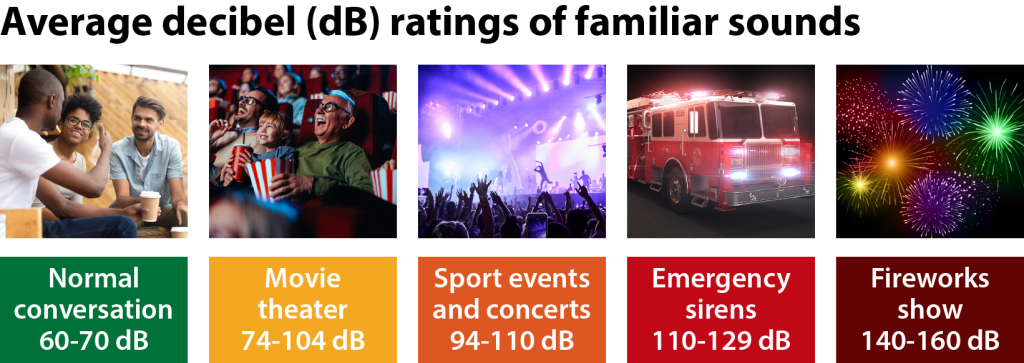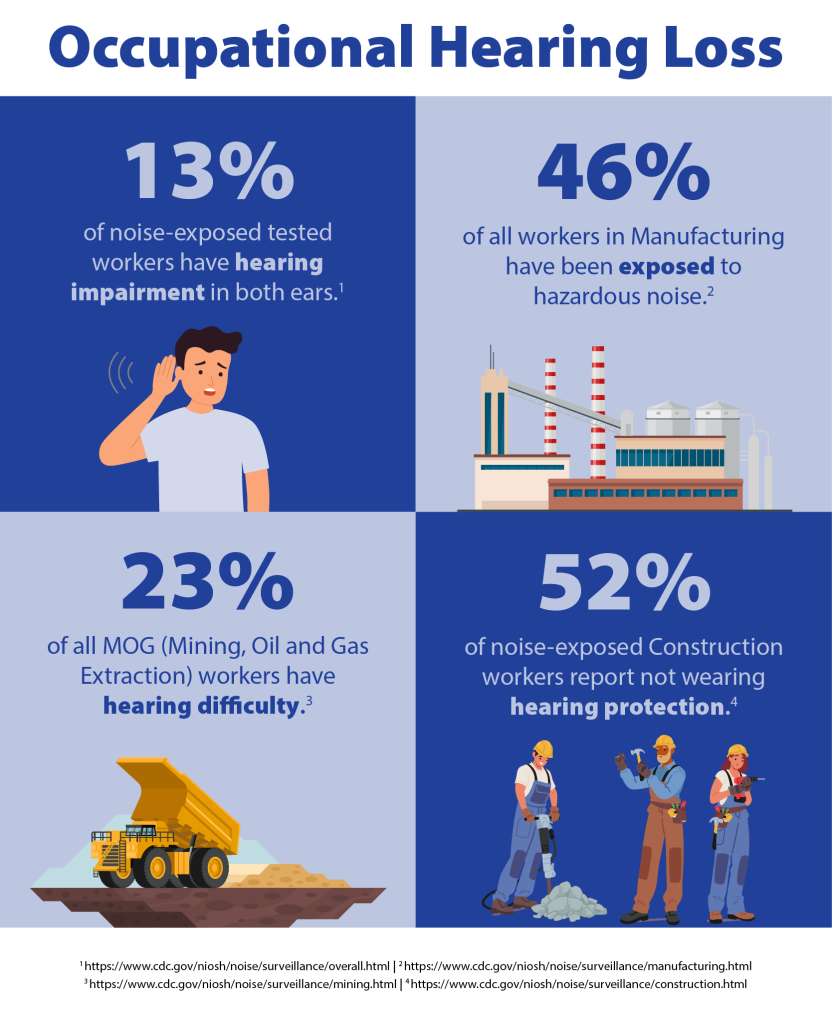Noise-Induced Hearing Loss (NIHL) doesn’t just happen at concerts or construction sites; it’s woven into life’s soundtrack. From morning pump-up music through earbuds, to sirens during daily commutes, and nightly relaxation watching movies with loud surround sound, it all adds up. Although these routine moments seem harmless, over time, they can negatively impact your hearing health.
NIHL happens when loud sounds damage your inner ear’s tiny hair cells, the sensors that send sound signals to your brain. With daily exposure to loud noises, this can happen suddenly or gradually. Once damaged, hair cells don’t regenerate, which can lead to permanent reduction in hearing capability.
Did you know…
Approximately 40 million Americans between the ages of 20-69 have some degree of hearing loss attributed to exposure to loud noises at work or in leisure activities? 1
By teaching children and young adults how to protect their hearing now, we will greatly reduce the risks of long-term damage. In doing so, it’s important to understand what noise is and how it affects the ears.
Noise is measured in decibels (dB), which represents the relative loudness of sounds in the air as perceived by the human ear.
Noise-induced hearing loss is primarily caused by:
- How loud the noise is (dB)
- How long you hear the noise (duration)
Your daily soundtrack shouldn’t cost you your hearing. The good news? NIHL can be completely prevented starting with proactively mindful choices.
- Wear hearing protection
- Turn down the volume
- Check hearing regularly
- Limit exposure times
- Monitor noise with apps
- Advocate for noise safety
When thinking about how loud and for how long, it’s just as important to consider where the noise is happening and for many people, that is in the workplace.
Understanding the importance of preventing NIHL can empower you to protect yourself and loved ones. At home, on the job, or during leisure time, thoughtfully reduce exposure to loud noises.
We’re here to help. With evidence-based hearing tests, we may assess the type and degree of any hearing loss you may have. By monitoring changes with periodic checkups and listening to our sound advice, you will stay Happy to Hear for years to come.
1 https://www.nidcd.nih.gov/news/2017/us-adults-aged-20-69-years-show-signs-noise-induced-hearing-loss

